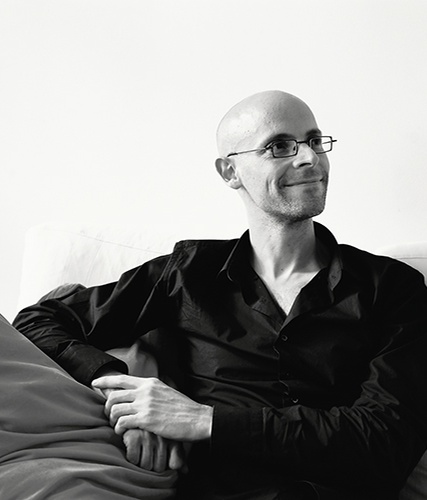The 1987 Max Headroom Broadcast Incident
Pour quatuor à cordes augmenté
Aux origines de ce quatuor, une histoire de pirates. Pas de pirates des Caraïbes, avec bandeau sur l’œil et perroquet sur l’épaule. Pas non plus de pirates de l’air – quoique. Ce sont plutôt des « pirates de l’information » – les ancêtres des hackers d’aujourd’hui en somme. Leur fait d’arme est absolument impensable aujourd’hui, tant les technologies dont ils (se) jouaient sont aujourd’hui obsolètes : un soir de novembre 1987, ils ont piraté le signal hertzien d’une chaîne télévisée de Chicago, remplaçant pendant plus de 90 secondes l’émission en cours par une transmission étrange et fantastique, qui aurait parfaitement sa place dans un film de David Lynch. Ce fut en fait doublement un acte de piraterie, puisque, outre le signal qu’ils s’arrogèrent, les pirates se livrèrent à une usurpation d’identité. Et pas n’importe quelle identité, puisque l’un d’eux était déguisé à l’écran en Max Headroom, un personnage télévisuel de science-fiction généré par ordinateur, très populaire à l’époque. Comble de l’irrespect pour le média dont ils s’emparaient, les pirates se moquaient en vrac de divers slogans publicitaires, icônes médiatiques, séries télé ou chansons.
Cet instant de basculement de l’ordre établi ne pouvait que séduire Mauro Lanza, lequel a déjà composé plusieurs pièces à ce sujet (encore très récemment à l’Ircam avec Ludus de Morte Regis [2013]). Pour ce quatuor, il déploie un imaginaire qui emprunte à la fois au film d’épouvante Videodrome de David Cronenberg – où des signaux vidéos particulièrement morbides sont susceptibles de prendre possession d’un homme et même de déformer la réalité – ainsi qu’à la science-fiction cyberpunk, en forme d’hommage à Fausto Romitelli.
Les enjeux électroniques
Que faire, avec pareil sujet, d’un quatuor à cordes « augmenté » ? Le détourner, bien sûr ! Détourner son identité et son discours de la même manière que les pirates d’alors ont détourné les postes de télévision de millions d’Américains. C’est donc au moyen de processus très largement inspirés des techniques de modulations de fréquence et d’amplitude, pratiques usuelles à la radio comme à la télévision, que le compositeur fait basculer le microcosme du quatuor, sa hiérarchie et ses codes.
Précédents projets à l'Ircam
Ludus de Morte Regis (2013), pour chœur et électronique
Häxan, la sorcellerie à travers les âges (2009), musique pour le film muet de Benjamin Christensen (Suède, 1921)
Vesperbild(2007), pour ensemble, instruments jouets et électronique
I funerali dell'anarchico Passannante (2005-2006), pour chœur et électronique
Le songe de Medée (2004), musique pour le ballet d'Angelin Preljocaj pour ensemble et électronique
Mare (2004), pour soprano, ensemble d'instruments d'enfants et huit instruments
Burger Time ou les tentations de saint Antoine (2001), pour tuba et électronique
Erba nera che cresci segno nero tu vivi(1999), pour soprano et sons de synthèse



